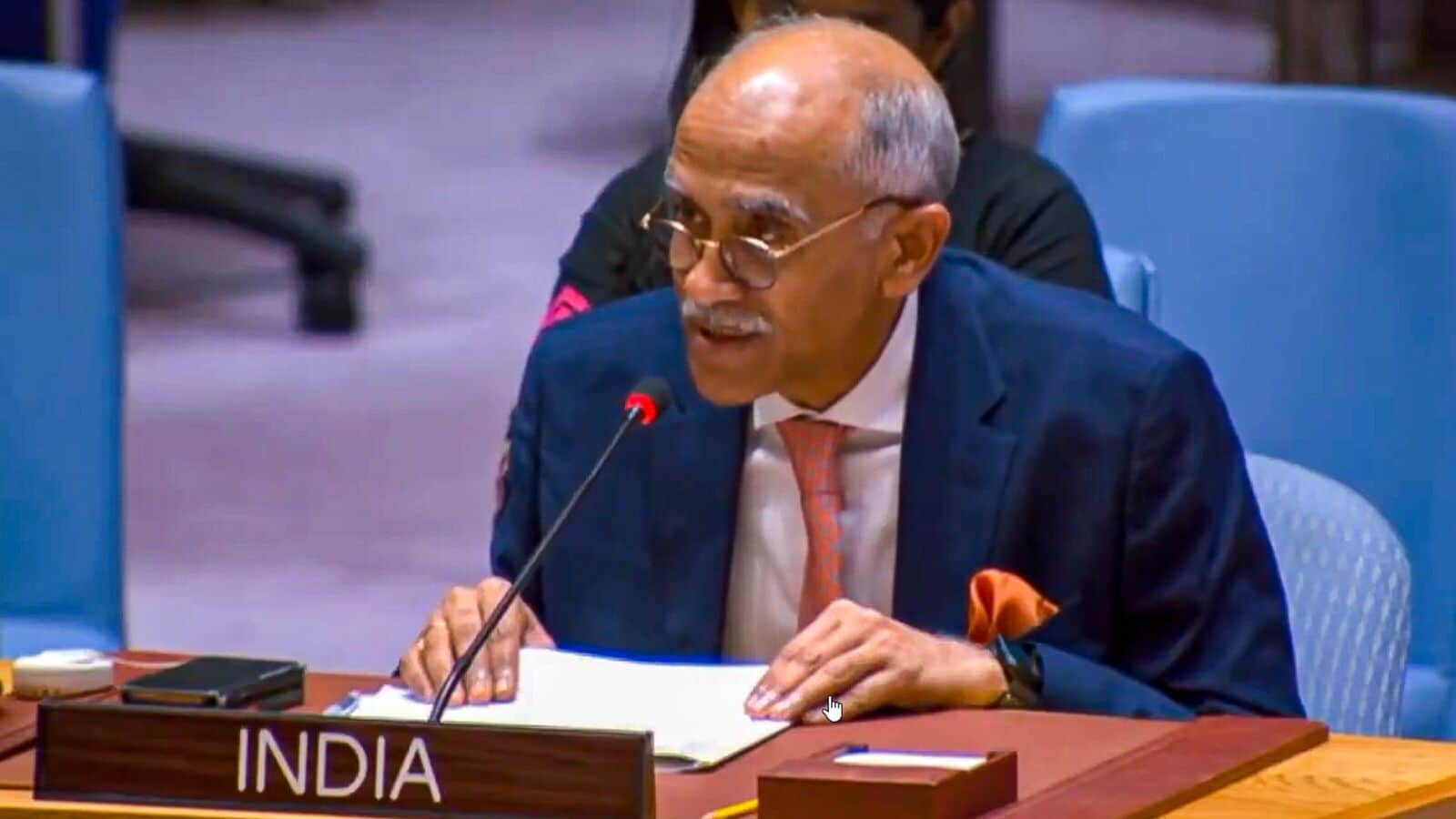India Slams Pakistan for Hypocritical Stance on Protecting Civilians and Violating Indus Water Treaty at UN Security Council Meeting

In a tough rebuke, India told the United Nations Security Council (UNSC) that Pakistan has no moral authority to speak about protecting civilians due to its own history of deliberately targeting Indian villages and spread disinformation over the Indus Water Treaty.
Ambassador Parvathaneni Harish, India's Permanent Representative to the UN, addressed the UNSC on Friday, stating that Pakistan's actions "killing more than 20 civilians and injuring more than 80" in Indian border villages were a clear example of hypocrisy. He also pointed out that Pakistani terrorism has predominantly targeted civilians for over four decades.
"The international community must come together on zero tolerance for terrorism and calling out those who sponsor and defend it," Harish said, urging the UNSC to take a unified stance against terrorism. He further claimed that Pakistan uses its civilian cover to advance the cause of terrorism, making it a global epicentre of terror.
In addition to the criticism over terrorism, India also accused Pakistan of spreading disinformation on the Indus Water Treaty. Ambassador Harish stated that India entered into the treaty in good faith 65 years ago but Pakistan has consistently violated its provisions by inflicting three wars and thousands of terror attacks on India, resulting in over 20,000 Indian lives lost.
India has suspended the Indus Waters Treaty since April 2025 following the Pahalgam terror attack, which it blamed on Pakistan-based terrorists. "It is clear that it is Pakistan which remains in violation of the Indus Water Treaty," Harish concluded, emphasizing India's commitment to responsible water management despite persistent cross-border terrorism.
The UNSC meeting saw Ambassador Harish present a firm stance against Pakistan's actions, calling for international accountability and an end to terrorism. The statement marks a significant shift in India's diplomatic approach, highlighting the need for collective action against terrorist groups that pose a threat not only to India but also to global security.
